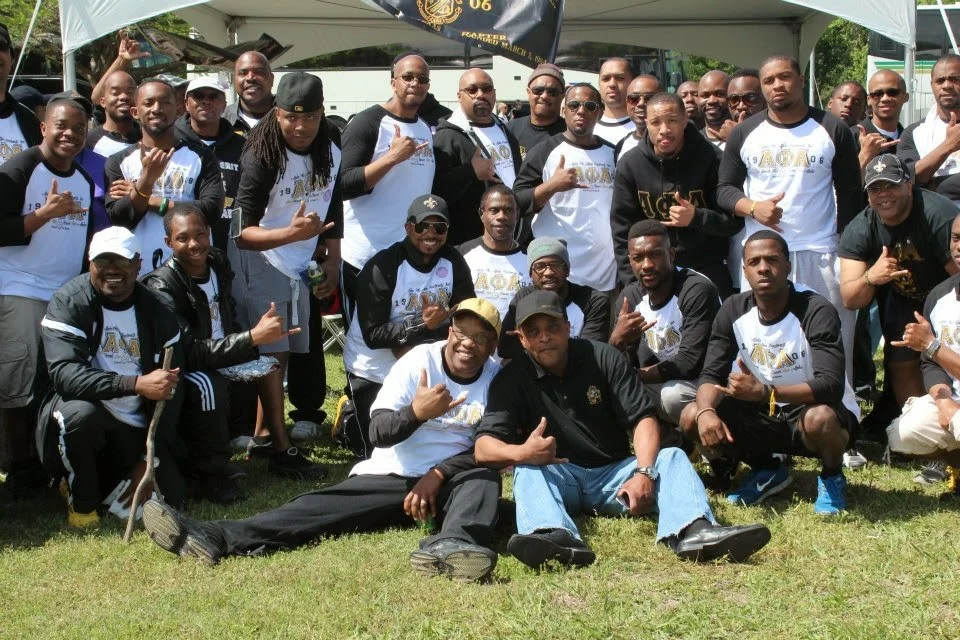A Deeper Look at the Divine Nine’s Impact

My fellow members of the Dallas “Divine Nine” community were treated to a thoughtful article by the Dallas Morning News in June. Many of us, including yours truly, are basking in the glow of a warm depiction of our brotherly and sisterly commitments followed by an even warmer commentary by the DMN editorial team. For a major-city news outlet to lend their voices to our narrative is a beautiful thing and I call on my fellow “Black Greeks” to use these types of stories as a foundation for thoughtful discourse about our collective identity and value.
There is a game I play with college Divine Nine Greeks to help them understand our collective value when I present the “Black Greek Success Program”. By challenging students to match aims and mottoes with the correct organizations, I illustrate that our nine fraternities and sororities seek to accomplish the same three things—scholarship, service, and love for all through brotherhood or sisterhood. The way we have collectively internalized those three values has defined our value as a network.
A deeper look at the Divine Nine reveals that there is much more to our organizations’ impact. For example, Omega Psi Phi member Carter G. Woodson gave us Black History Month and celebrated scientist George Washington Carver was a member of Phi Beta Sigma. The Harlem Renaissance, a period of African Americans’ self-actualization, is seasoned with such names as Alain Locke, James Weldon Johnson (both Sigmas), Langston Hughes (Omega), Zora Neale Hurston (Zeta Phi Beta), and Countee Cullen (Alpha Phi Alpha). We also have: Gen. Daniel “Chappie” James (Kappa Alpha Psi); Dr. Charles Drew (Omega); Mary T. Washington Wylie (Sigma Gamma Rho), the first African American woman to become a C.P.A. in the U.S.; and Harry Alford (Iota Phi Theta), co-founder of the National Black Chamber of Commerce. And we can’t forget important sociopolitical figures such as Ralph Bunche, Thurgood Marshall (both Alphas), Dorothy Height, Shirley Chisholm and Loretta Lynch, members of Delta Sigma Theta. In 2016, America learned the empowering story of “Hidden Figures” Katherine G. Johnson, Dorothy J. Vaughan and Mary W. Jackson, all members of Alpha Kappa Alpha. That is the tip of the iceberg.
The real discussion, however, is about how Divine Nine members excel as a result of their memberships. Research exploring African American fraternity and sorority college members’ leadership skills hit me in a nice spot about 20 years ago. Walter Kimbrough and Philo Hutcheson’s “The Impact of Membership in Black Greek-Letter Organizations on Black Students’ Involvement in College Activities and Their Development of Leadership Skills” changed the game. Finally, something helped us understand how we got those notable members! Michael Cuyjet’s “African American Men in College” provided further confirmation by including a study by Shaun Harper and Frank Harris, III. The study suggested that African American fraternity members benefit from “(1) racial identity development, (2) leadership development, (3) development of practical competence, and (4) cognitive development.” I believe we can apply the same to African American sorority members.
The space where I see Black Greeks’ identity and value being the strongest is education. At least 50 percent of the combined 90 Divine Nine founders were connected in some way to education. That includes the founders of Sigma Gamma Rho who were all educators, Phi Beta Sigma founder Leonard Morse who served as president of Edward Waters College, and AKA founder Lucy Diggs Slowe who was the first African American member of the National Association of Women Deans, Administrators and Counselors. Frederick Douglass Patterson (Alpha) founded the United Negro College Fund, and Black Greeks’ impact on higher education continues today with leaders such as William Harvey(Omega), Kimbrough, Charlie Nelms, (both Alphas), and Johnetta Cole (Delta). But go to schools in major under resourced urban areas and you will likely find principals, teachers and staff members proudly wearing their letters to motivate students to embrace education. A great example is elementary school teacher Barry White, Jr. (Kappa) whose feel-good pre-class greeting video with his students went viral.
I wish I had nothing but inspiring news to share but we are not exempt from the sins of Greek life. We receive well-deserved criticism because of hazing, and there are those who argue that our organizations don’t have the social impact that we used to have. We must realize that we Black Greeks are leaders and leaders are only as strong as their ethics.
As great as it is to have a major news outlet tell such a thoughtful story about the Divine Nine, we must own our narrative. That being said, I call on my fellow Black Greeks to continue a strong tradition of servant leadership by focusing on the character of membership. After all, our organizations are strong because of members who view their missions as extensions of their identity and value.

















